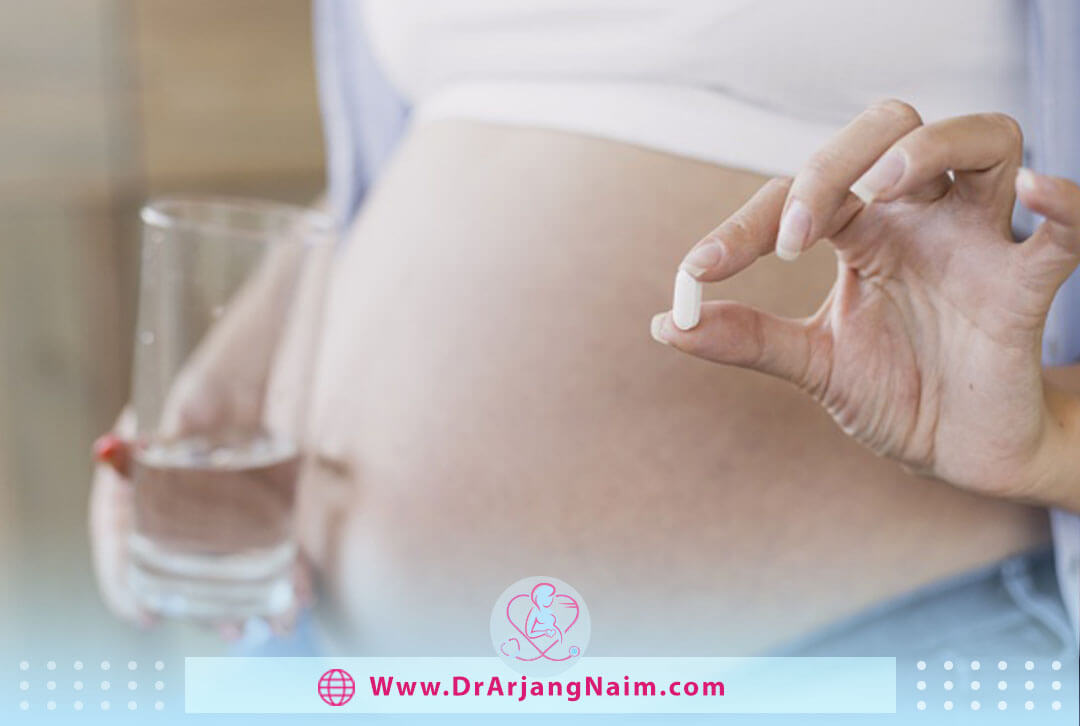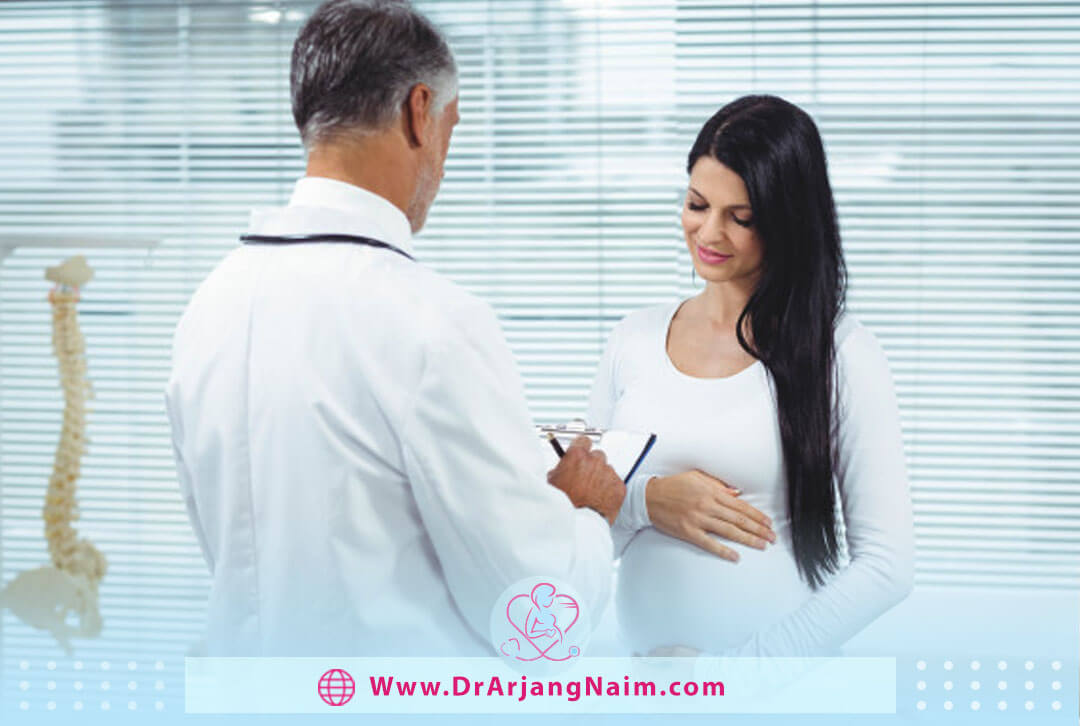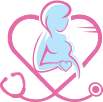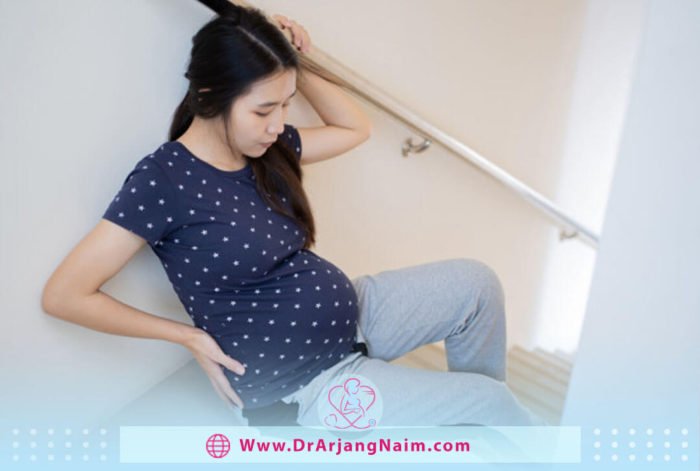One of the ailments that bother pregnant mothers during pregnancy is round ligament pain. Being pregnant brings many pleasures, but it also brings many discomforts. Round ligament pain is usually experienced during pregnancy, and although it is entirely safe, it can cause a lot of pain.
Round ligament pain is severe pain or feeling of weakness that is often felt in the lower abdomen or groin on one or both sides. It is one of the most common complaints during pregnancy and is considered a natural part of pregnancy, often felt in the second trimester.
What is round ligament pain?
Round ligaments are a pair of cord-like ligaments that support the uterus by connecting from the front of the uterus to the groin area. Round ligaments are shorter, stronger, and more flexible if the woman is not pregnant. As the pregnancy progresses, the round ligaments become soft and stretched because they are under a lot of pressure from the growing baby.
This pain is caused by tightening (or spasm) of ligaments and stimulation of adjacent nerve fibers. This pain is a sign of pregnancy common in the second trimester and may be felt in the third trimester. Rapid and sudden movements cause the ligaments to tighten quickly, causing the nerve fibers to stretch. This can cause severe pain and discomfort. It is usually felt on the right side of the abdomen or pelvis but can occur simultaneously on the left or both sides.
Women describe the pain as deep, like a stabbing, and it usually gets worse suddenly with sudden movements. This pain increases in the following conditions.
- Walking
- Stand fast
- Cough
- Sneeze
- To laugh
- Sudden movement
- Rolling in bed
When does round ligament pain start?
Round ligament pain becomes more stretched as the fetus grows. First-time mothers usually begin to show around 16 weeks to 20 weeks pregnant, but your belly will appear sooner if you already have a baby. Either way, in the second trimester, your uterus enlarges and pushes inward. This is when most women feel pain in the round ligament.
Symptoms
Pain intensity varies from person to person. If you are experiencing your first pregnancy, you may be afraid that this pain is due to a bigger problem. But recognizing the symptoms of round ligament pain can alleviate your anxiety. A sudden and severe spasm in the abdomen or hip is the most noticeable sign of pain in a round ligament.
The pain usually occurs on the right side. Some pregnant women have round ligament pain on both sides. This pain is temporary and usually stops after a few seconds or minutes, but the pain can be intermittent and return. Some activities and movements can cause pain.
You will most likely feel uncomfortable during physical activity because movement causes the ligaments to stretch. But once you identify the activities causing you pain, you can adjust to relieve your discomfort.
Diagnose
There are no specific tests to diagnose round ligament pain. If you experience this pain, consult your doctor to reduce anxiety. Usually, your doctor can diagnose this pain by describing the symptoms.
Your doctor may do a physical exam to ensure another problem does not cause pain. Tell your doctor if your round ligament pain does not go away after a few minutes or if you have severe pain with other symptoms. These symptoms include:
- Fever
- Chills
- Pain with bleeding
- Pain with urination
- Difficulty walking
Round ligament pain occurs in the lower abdomen, so you may think any pain you feel in this area is due to ligament strain. But this is not always the case. You may have a more serious illness that requires you to see a doctor.
Treatment

There are a few tips that can reduce the feeling of pain.
Pain reliever
If necessary, take acetaminophen without a prescription. Talk to your doctor about taking pills.
Sport
Get enough exercise to keep your stomach muscles strong. Doing stretching or yoga can be helpful. Ask your doctor which activity is safe for you and your baby. A useful exercise involves placing your hands and knees on the floor, lowering your head, and pushing your back into the air.
Move slowly
Rapid movements are likely to cause pain in the round ligament. Try to move slowly if you notice increased pain during a specific movement. Do not try to stretch or stretch yourself too much, as this will put more strain on your ligaments.
Bend your hips
Bend your hips before sneezing, coughing, or laughing to prevent the ligaments from pulling.
Apply heat
A heating pad or hot bath may be helpful. Talk to your doctor about the amount of heat; extreme heat can be dangerous for your baby.
Change your position
Like many other pains that are felt during pregnancy, your first step is to change your posture to reduce the pain if you have round ligament pain. When lying on your side, you may feel relieved by using a pillow to support your stomach. You can also try sleeping with a pillow in the middle of your legs.
Stop what you’re doing
If you feel a sudden pain, stop or change your activity until you feel comfortable. You may find that some exercises or physical activities cause more pain than others.
Consider wearing a maternity belt
Fastening the pregnancy belt helps to reduce the pressure by providing strong yet gentle support.
Pay attention to posture
Keep your back straight, shoulders back, head, shoulders, and hips in line. Better posture reduces some of the pressure on the ligaments.
Swim
Swimming is a great exercise that also supports the body in reducing pressure on the ligaments and joints.
Massage away the pain
Lying down and massaging the ligament area can help soothe and relieve pain. Use firm but gentle pressure and focus on the sides of the uterus and uterus groin. Using some lotion or magnesium oil can increase the benefits of massage.
Ditch the tight bra
When the bra is too tight, this puts pressure on the middle of the back and diaphragm. Pressure in these areas has a domino effect along the spine that can also affect the pelvic floor muscles.
Nourish your ligaments
Our ligaments are primarily made up of collagen. Consumption of plant collagen powder can help strengthen and repair them. Our body naturally produces collagen, so various nutrients are needed for collagen synthesis.
A healthy and nutritious diet can help magnesium, Zinc, and B12 helps form DNA and RNA. When these three are deficient, collagen production is disrupted. Vitamin C and iron help the amino acids that make collagen and stimulate collagen secretion from the cell after production. Vitamins B6, B2, and copper Work together to connect collagen fibers.
When to see a doctor

Sometimes, pain in the lower abdomen and groin during pregnancy requires a doctor’s attention. Pregnant women should talk to their doctor if they notice any of the following symptoms:
- Severe abdominal pain that lasts more than a few seconds and does not go away with a change of position
- Pain or burning during urination
- Premature uterine contractions
- Bleeding or spotting
- Increase or any other change in vaginal discharge
- Nausea and vomiting
- Fever or chills
- Difficulty walking
- Increase in pelvic pressure
Other conditions that can cause pain include:
- Urinary tract infections
- Pregnancy-induced constipation
- Appendicitis
- Kidney stones
- Sexually transmitted infections
- Placental abruption
- Preterm labor
Round ligament pain is common during pregnancy, so do not be surprised if you experience some symptoms, especially in the second trimester. Several strategies can be used to relieve stress and reduce pain. In most cases, the pain usually improves as soon as you move into the third trimester; for some women, it even goes away.
Additional questions
- What month does the round ligament pain stop?
It usually starts around 12 to 14 weeks as the belly bulge gets bigger and then goes away by 16 weeks, although sometimes the pain lasts a little longer. - Why is round ligament pain worse at night?
Sudden movements cause round ligament pain. While you sleep, you may unknowingly roll onto your side, causing your ligaments to tighten. - What activities are allowed during pregnancy?
Continue your normal daily physical activity or exercise as long as you feel comfortable. Exercise is not dangerous for children. Evidence shows active women experience fewer problems during pregnancy and subsequent delivery. - Does body position affect pregnancy?
One of the most important contributions to a healthy pregnancy is good posture. Proper alignment can reduce back and neck pain and fatigue. - Which vitamin is good for ligaments?
Vitamin C is important in the healing of tendons and ligaments, mainly due to its antioxidant properties and function as a cofactor for collagen synthesis.
References
https://www.webmd.com/baby/guide/pregnancy-round-ligament-pain
https://www.babycenter.com/pregnancy/health-and-safety/round-ligament-pain_205
https://www.bannerhealth.com/healthcareblog/better-me/round-ligament-pain-during-pregnancy
https://www.whattoexpect.com/pregnancy/symptoms-and-solutions/abdominal-achiness.aspx




